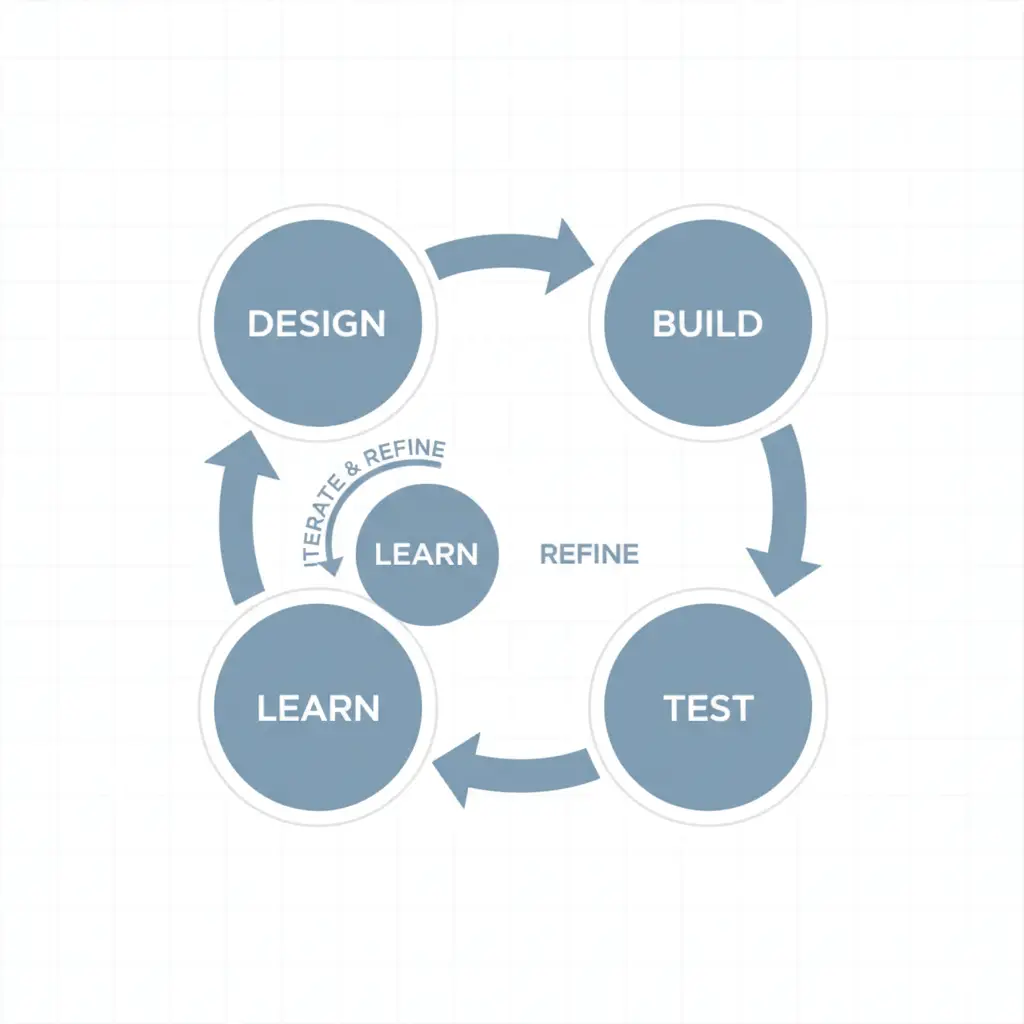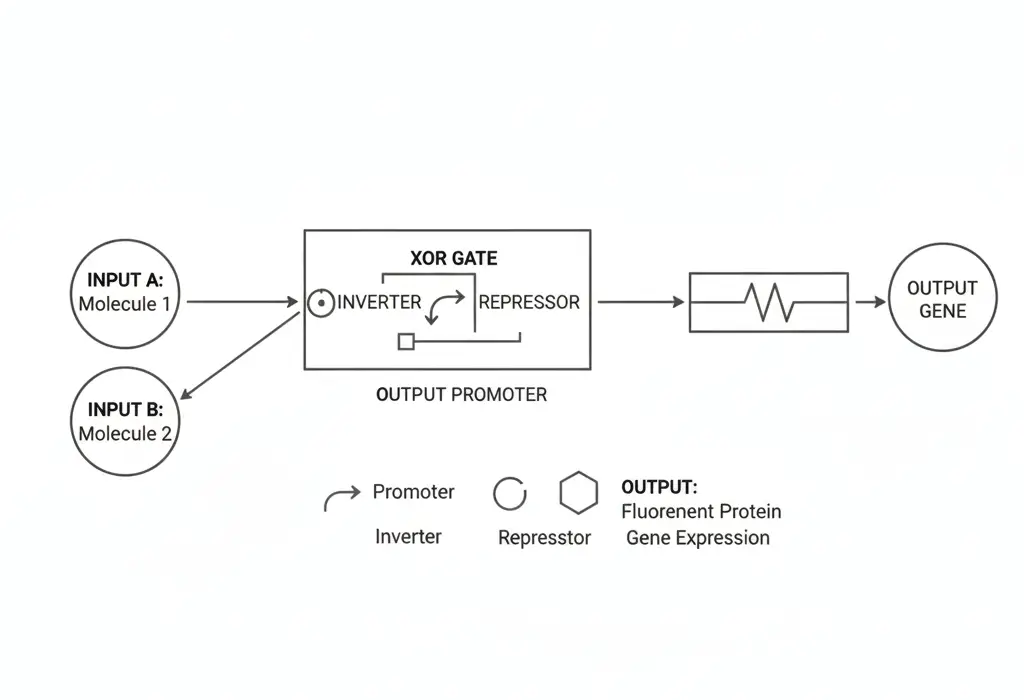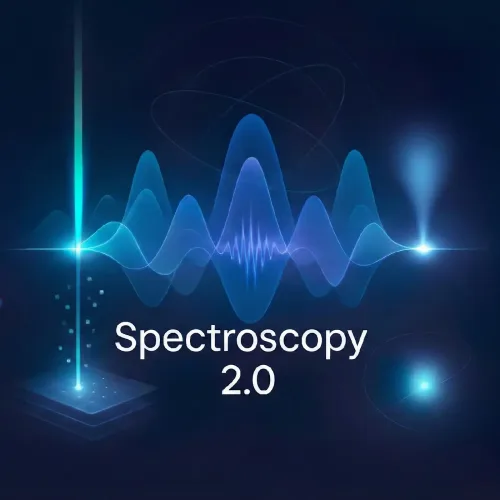Synthetic biology is one of the most exciting and game-changing fields in science today. Scientists use it to apply engineering principles, like design, abstraction, and standardization, directly to biology. In simple terms, they build new biological parts, devices, and systems, or redesign natural ones to serve useful purposes. This groundbreaking field simplifies DNA engineering. It gives researchers the power to program life with incredible speed and precision.
What is Synthetic Biology?
Synthetic biology is not as complicated as it sounds. At its core, it is about designing and creating new biological parts or reprogramming existing parts. This branch of science combines engineering principles with biology, allowing researchers to change organisms at the genetic level. Essentially, synthetic biology focuses on creating synthetic DNA and inserting it into living systems to achieve a desired purpose.
Think of synthetic biology as a modern version of nature. Where nature evolves slowly, synthetic biology can make precise changes quickly. By rewriting DNA, we can control the behavior of organisms, making them carry out functions that we find useful.
Why Simplified DNA Engineering & Genetics Matters
The power of simplified DNA engineering reaches far beyond lab experiments. Synthetic biology makes genetic manipulation easier, more predictable, and more flexible—helping us solve some of the world’s biggest challenges. Medical teams now engineer cells that can detect and fight cancer. Environmental experts build biosensors that instantly spot pollutants. Farmers and scientists design crops that survive tough climates while needing fewer resources.
This simplification opens biotechnology to everyone. Libraries of standard biological parts let researchers around the world share genetic components, much like open-source software. Schools and programs introduce high school students to genetic engineering through safe, well-structured competitions. Powerful computer tools now predict results before scientists even step into the lab, saving both time and money.
How DNA Engineering Works
Synthetic biology works through a clear, step-by-step process, very different from the trial-and-error approach in traditional biology. Scientists follow what’s called the Design → Build → Test → Learn (DBTL) cycle to create and improve biological systems.
Design → Build → Test → Learn (DBTL)
The DBTL cycle acts as the backbone of synthetic biology research:
- Design: Scientists start by using computer tools to set a clear goal for the biological function they want. They then design genetic circuits (DNA sequences) that can make this function happen.
- Build: Next, they turn these designs into reality. The DNA sequences are chemically synthesized and assembled into working genetic constructs. This step is all about creating the biological “hardware.”
- Test: The newly built genetic circuits are placed inside a host organism, often yeast or E. coli. Researchers then carefully measure how well the circuits perform compared to the original design goals.
- Learn: Finally, the results are analyzed. If things don’t work as expected, the data helps improve the computer models. This leads to a better design in the next round. The cycle then starts again, making each version smarter and more efficient.
This continuous loop of designing, building, testing, and learning drives steady progress in synthetic biology.

Computational Design + Predictive Tools
Modern synthetic biology relies a lot on computing. Scientists use software to design and test genetic circuits on a computer before building them in the lab. These tools range from simple calculators that measure promoter strength. They can also be as advanced as platforms that simulate entire cells. By predicting outcomes, they replace guesswork with clear engineering steps. They help identify unwanted side effects. These tools also fine-tune gene expression. They reduce the number of costly and time-consuming lab experiments.
Simplified DNA Engineering is Game-Changing
Until recently, editing genes was a slow and expensive process. Today, simplified DNA engineering has made it possible to edit genes quickly and at a much lower cost. This leap in technology has given rise to a new era of genetic research. Whether it is growing disease-resistant crops or creating new drugs to treat diseases, the possibilities are inconceivable.
Applications in Medicine and Agriculture

The practical applications of synthetic biology are enormous. Here are some of the ways it is changing our world:
1. Medicine
Synthetic biology is helping researchers develop personalized medicines and treatments for diseases like cancer. For example, gene therapy can now cure genetic disorders at their source.
2. Agriculture
By creating crops with synthetic DNA, we are creating plants that can withstand harsh weather, pests, and even drought. This helps increase food production and sustainability.
Enabling Technologies of DNA Engineering
Cutting-edge tools drive the rapid growth of synthetic biology, making the design-build-test-learn (DBTL) cycle work smoothly and effectively.
1. DNA Synthesis & Gene Synthesis
Scientists can now create any DNA sequence they want, and this power has completely changed the field. In DNA synthesis, they chemically build short strands of DNA called oligonucleotides. Next, they join these short strands together to form longer, working genes. They can even create whole genetic circuits. This is a process known as gene synthesis. As technology keeps advancing, the price of DNA synthesis keeps dropping. As a result, labs everywhere can now afford to design their own genetic code.
2. DNA Assembly / Cloning Methods
After scientists make individual DNA parts, they link them together with precision. Fast and reliable assembly is the backbone of modern, simplified DNA engineering.
- Gibson Assembly works in a single reaction at a constant temperature. It joins DNA fragments by matching their overlapping ends, so researchers can connect multiple pieces quickly without using restriction enzymes.
- Golden Gate Assembly uses special enzymes (Type IIs restriction enzymes) that cut outside their recognition sites. This trick allows DNA parts to connect seamlessly, without leaving any extra or “scar” sequences. It’s highly modular and perfect for building complex gene circuits.
- Restriction-free Overlapping depends on PCR. Scientists design primers with shared overlaps, and the PCR process stitches the DNA fragments together.
- In vivo Recombination takes place inside a living host, usually yeast. The cell’s natural recombination system pieces the DNA fragments together directly within the organism.
| Assembly Method | Key Advantage | Scale |
|---|---|---|
| Gibson Assembly | Fast, single-step reaction. | Medium to Large (multiple fragments) |
| Golden Gate | Scarless assembly, highly modular. | Small to Medium (defined parts) |
| In Vivo Recombination | Extremely efficient for very long constructs. | Very Large (genomic scale) |
3. Gene Circuits, Promoters, Switches, Sensors, Logic Gates
The heart of synthetic biology lies in building gene circuits. These are networks of genes, promoters, and proteins. They work much like electronic circuits.
- Promoters act as switches and dials, turning genes on or off and controlling how strongly they are expressed.
- Switches and sensors are proteins that pick up signals from the environment, such as a chemical or a change in temperature, and trigger the next step in the circuit.
- Logic gates give cells the power to make decisions. For instance, an AND gate turns a gene on only when two specific chemical signals appear at the same time. These gates form the foundation for programming cellular behavior.

4. Chassis Engineering (Microbes, Minimal Genomes, Synthetic Cells)
Scientists often refer to the host organism as the chassis.
- Chassis engineering means improving hosts like E. coli or yeast so they can handle new genetic circuits more efficiently. To do this, scientists may delete native genes that interfere with synthetic functions or boost the resources the circuit needs.
- With minimal genomes, researchers remove every nonessential part of the DNA, leaving behind only what’s absolutely required. This “clean” host becomes easier to program because there’s no extra genetic noise in the way.
- The ultimate step is building synthetic cells, cells with fully designed genomes. These would work with complete predictability, opening the door to a new era of synthetic biology.
5. Gene Editing Tools (CRISPR, Base Editing, Prime Editing)
Scientists still use traditional genetic engineering methods, but powerful new tools have completely changed the field. CRISPR-Cas9 now makes it possible to quickly and accurately edit the genome of almost any organism. Even more advanced methods have followed. Base Editing lets researchers change a single DNA letter. This is done without cutting the strand. Prime Editing, on the other hand, works like a “search-and-replace” tool for DNA. These breakthroughs give scientists the precision they need to design complex synthetic systems. If you’d like to explore the science behind these technologies in detail, we recommend Genome Editing in Biomedical Sciences, which provides a clear and in-depth explanation of how they work.
Challenges, Limitations, and Risks in Synthetic Biology and DNA Engineering
Synthetic biology holds massive promise, but the field also runs into serious scientific, technical, and ethical roadblocks.
Predictability, Robustness, and Context Dependence
One of the biggest challenges is turning designs into working systems with confidence.
- Predictability: Biology doesn’t always follow the rules. A genetic circuit that works smoothly in one organism can completely fail in another because of tiny differences inside the cell.
- Robustness: Synthetic systems are often fragile. Over time, they may lose efficiency due to stress on the cell’s metabolism or changes caused by genetic drift.
- Context Dependence: A genetic part rarely behaves the same way everywhere. Its function can shift depending on where it sits in the genome or what other parts surround it.
Unintended Interactions, Mutation, and Stability
Adding new genetic material often triggers unexpected results. It can interact with the host cell in ways that drain resources or even cause toxicity. On top of that, evolution doesn’t stand still, mutations or host defenses can shut down synthetic systems to restore balance. Keeping these systems stable and reliable over the long term is still a huge challenge.
Biosecurity and Dual Use Concerns
The power to write complex DNA code brings serious risks. The same methods that produce life-saving drugs could also be misused to build harmful bioweapons. This “dual use” problem demands strict monitoring, restricted access to DNA synthesis tools, and strong global oversight to keep the technology safe.
Regulation, Intellectual Property, and Public Trust
- Regulation: Governments need clear and flexible rules that balance innovation with safety.
- Intellectual Property (IP): Standardized genetic “parts” raise tricky ownership questions. If thousands of researchers use the same BioBrick, who actually owns it?
- Public Acceptance: Winning public trust is just as important as solving technical problems. Open, honest communication about both the benefits and the risks of synthetic biology is key to making sure society supports its use.
Everyday Impact of Synthetic Biology
Synthetic biology has already made a significant mark on our daily lives. You are not realizing it. Still, products like synthetic insulin, which helps millions of people with diabetes, are a direct result of DNA engineering. Genetically modified crops also contribute to the food supply, ensuring we have enough resources to feed a growing global population.
As technology advances, synthetic biology will continue to revolutionize the industries we depend on every day.
Learn DNA Engineering
Synthetic biology seems advanced, but there are ample resources available to get started with DNA engineering, even for beginners.
Tools for Beginners
If you are interested in learning more, here are some beginner-friendly tools and resources:
- Bio Builder: An educational platform that provides kits and curriculum for learning synthetic biology.
- Bench ling: A cloud-based tool that helps students and researchers design DNA sequences and run experiments.
- CRISPR simulators: Several online simulators allow you to practice DNA editing without a lab.
These tools make learning synthetic biology concepts easy, even for someone with limited biology background.
Conclusion
Synthetic biology, especially simplified DNA engineering, is taking genetics to new heights. We are no longer spectators in nature’s play, we have become active participants. We be growing stronger crops. Furthermore, we are creating new medicines. We are also programming bacteria to clean up the environment. Synthetic biology has enormous potential. As this technology continues to develop, its potential to change the world grows every day.
Recommended Resources for curious minds
Here’s a handpicked list of key resources that will guide you further into the exciting world of Synthetic Biology and DNA engineering.
- Principles of Synthetic Biology by Geoff Baldwin
- DIY Bio Lab Kit
- The Code Breaker: Jennifer Doudna, Gene Editing, and the Future of the Human Race by Walter Isaacson
- Introduction to Computational Biology: An Evolutionary Approach by Bernhard Haubold
Frequently Asked Questions about Synthetic Biology
Synthetic biology is the science of designing and building new biological systems, like reprogramming cells to make medicines, fuels, or materials. It’s like treating biology as if it were programmable software.
Genetic engineering usually edits or transfers specific genes, while synthetic biology takes it further, creating new genetic circuits, pathways, or even entire organisms from scratch using standardized biological parts.
Like all powerful technologies, synthetic biology carries risks. Safety depends on strict lab practices, regulations, and ethical oversight. Most applications are designed with safeguards to prevent harm.
AI helps design DNA sequences, predict gene behavior, and optimize experiments. In the future, labs may become fully automated “biofoundries” where AI designs and robots build living systems.
Yes, researchers have already created a synthetic bacterial genome and are working on minimal or entirely artificial cells. However, creating complex organisms like humans is far beyond current science.




